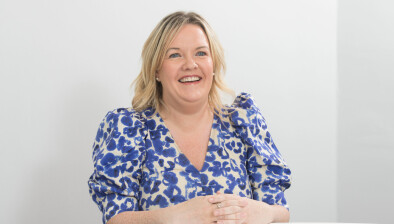Blog: Cloud accounting for the rural sector - the pros and cons

As “The Cloud” continues to assert itself on the accounting landscape and looks certain to play a big part in the managing of business finances well into the future, rural sector experts at accountants Saffery Champness take a closer look at its applicability to businesses operating outside of the urban setting
In a nutshell cloud computing - and by association cloud accounting - are internet based, with the services accessible from anywhere where there is an internet connection. Nothing is stored locally on a computer; everything is remote, and on the cloud. So, what are the advantages and disadvantages of cloud accounting when it comes to an average rural sector business?
Advantages
User friendly
Cloud accounting is user friendly. It is designed for the customer – the end-user – and not the accountant. It’s modern, simple and easy to understand.
Accessibility
It is mobile and accessible wherever you are. It is available on any device with an internet connection so, suddenly, you don’t have to be tied to an office, or where the paper records are stored. For example, you can record your expenses while on the road via an app on your phone or produce a sales invoice which is entered in your company books and on its way to the customer long before you get back to the farm or estate office.
Time saving
This is a major benefit. Having systems linked to your bank and to your cards and accounts means that data input time is significantly reduced, as well as the risk of error. Checking bank statements against outgoings is just one example of where the system will do it for you.
Real time information
Cloud accounting provides the user with real time information, meaning that a business should be right up to date with its financial position in a couple of clicks and can act quickly in the event of any unforeseen circumstances. The same goes for early warning of any possible fraudulent activity.
Cost
Cost is a real advantage. Whereas accountancy software packages formerly were very expensive, the new cloud-based systems can typically cost around £20 per month for most book-keeping and recording needs.
And the downside
Absolute reliance on an internet connection
The internet is the only route to access the cloud. While this can be very fast it can also be slow, intermittent, or non-existent in parts of the UK, and particularly in remoter areas. If you cannot access the internet then you cannot access the cloud.
Support
Where something goes wrong it can take up to 24 hours for free support, and different providers offer different levels of support and service. With a traditional accounting software package, you may have been able to speak to someone on the telephone. However, with cloud-based packages, the providers, by their very nature, tend to prefer e-mail and online means of communication which can be slower.
Safety
A common concern is whether cloud accounting is secure. In actual fact, cloud accounting packages are probably much safer than traditional packages, whether paper or software based. Your data does not travel with your computer, or on any storage device. There is far less chance of losing it, having it corrupted, or hijacked and held to ransom. Whilst no system can be completely safe from cyber criminals, every reputable provider offers the highest levels of encryption and protection.
Accuracy
Systems have been known to throw up errors from time to time. Being super-intelligent, cloud accounting systems can be caught out where regular routines are broken or consistent payments suddenly vary. They can make mistakes.

Jamie Younger, Partner at Saffery Champness in Edinburgh and head of the firm’s landed estates and rural business group, says: An increasing number of clients are turning to cloud accounting. This makes good sense as more farm activity and reporting requirements go digital. It is not for everyone yet and there is still some way to go in terms of development. In time it will surely be able to do far more and have far broader capability - but it is undoubtedly here to stay. We have moved from paper reporting and record keeping to accounting software and the cloud is the next logical step.”








